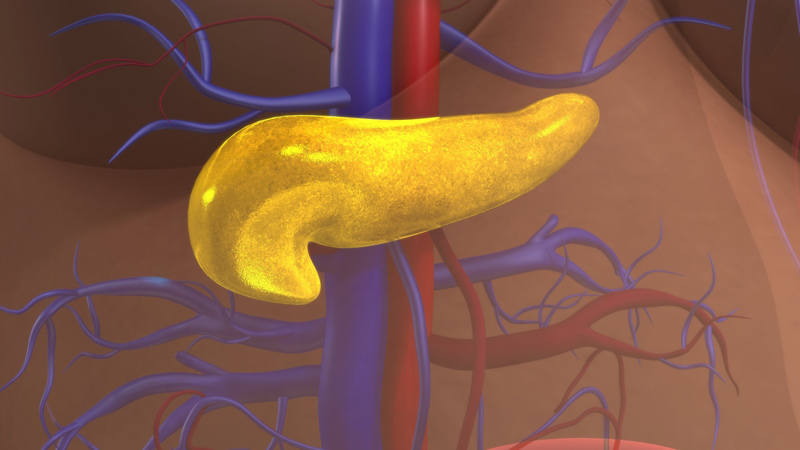
4th June 2016 Pancreatic cancer survival could be increased from 16% to 29% A new combination of chemotherapy drugs for pancreatic cancer, presented at the world's biggest cancer conference, shows long-term survival could be increased from 16% to 29%.
An extra 13 percent of pancreatic cancer patients will live for at least five years when given a combination of chemotherapy drugs compared with standard treatment, according to the results of a Cancer Research UK trial being presented at the American Society of Clinical Oncology (ASCO). Researchers involved in this major clinical trial have described the results as "incredibly exciting" and a "major win" in the fight against cancer. They are recommending the new treatment to become the standard therapy for patients with the disease. Doctors on the trial – which took place in many hospitals across the United Kingdom, Germany, Sweden and France – treated 732 patients who had surgery to remove their tumour. Around half received the chemotherapy drug gemcitabine (currently the standard treatment for pancreatic cancer), while the other half received a combination of both gemcitabine and capecitabine. The trial showed that 29 per cent of patients given the drug combination lived at least five years compared with only 16 per cent of patients given gemcitabine alone. There was no significant difference in side effects between the patients on the standard treatment and the combination treatment. The trial was set up in 2008 to address the very poor survival rates for pancreatic cancer. It is normally diagnosed at a late stage, when the cancer is already locally advanced or has spread to other parts of the body. An estimated 8,800 people die from the disease each year in the UK, making it the fifth leading cause of cancer death. In the USA the figure is 42,000, making it the fourth leading cause. Worldwide, it is responsible for 6% of all cancer deaths each year. The majority of cases occur in developed countries. Professor John Neoptolemos from the University of Liverpool, who led the trial, commented: "This important trial shows that this drug combination could give pancreatic patients valuable extra months and even years and so will become the new treatment for patients with this disease. The difference in short term survival may seem modest, but improvement in long-term survival is substantial for this cancer. "Although pancreatic cancer is difficult to treat, finding drugs that will shrink the tumour enough to make it suitable for surgery will help in the fight against this disease. We've learnt a lot about pancreatic cancer from our clinical trials and now this drug combination will become the new standard of care for patients with the disease." Professor Peter Johnson, Cancer Research UK's chief clinician, said: "Nearly 10,000 people are diagnosed with pancreatic cancer each year in the UK and it remains a very difficult disease to find and treat. Despite this, we are making steady progress, through trials like this one, where the use of better chemotherapy after surgery was able to increase the number of people surviving the disease. We still have a long way to go, but Cancer Research UK is investing heavily into research to take on pancreatic cancer, and we are just starting to see the results." Alex Ford, chief executive of Pancreatic Cancer UK, commented: "These are incredibly exciting results from a major trial for those diagnosed with this dreadful disease. The outlook for pancreatic cancer has been grim. With few treatment options, survival rates have barely changed in 40 years. At the same time, incidence is set to soar by a third, to more than 12,000 people being diagnosed every year by 2030. The possibility of increasing survival for those who have undergone surgery will give great hope to patients and their families who may benefit. The importance of clinical trials to help transform the outlook for pancreatic cancer cannot be over-estimated. We now need to see these results quickly translate to a change in approach by clinicians so that patients start to benefit more widely straightaway." ---
Comments »
|







